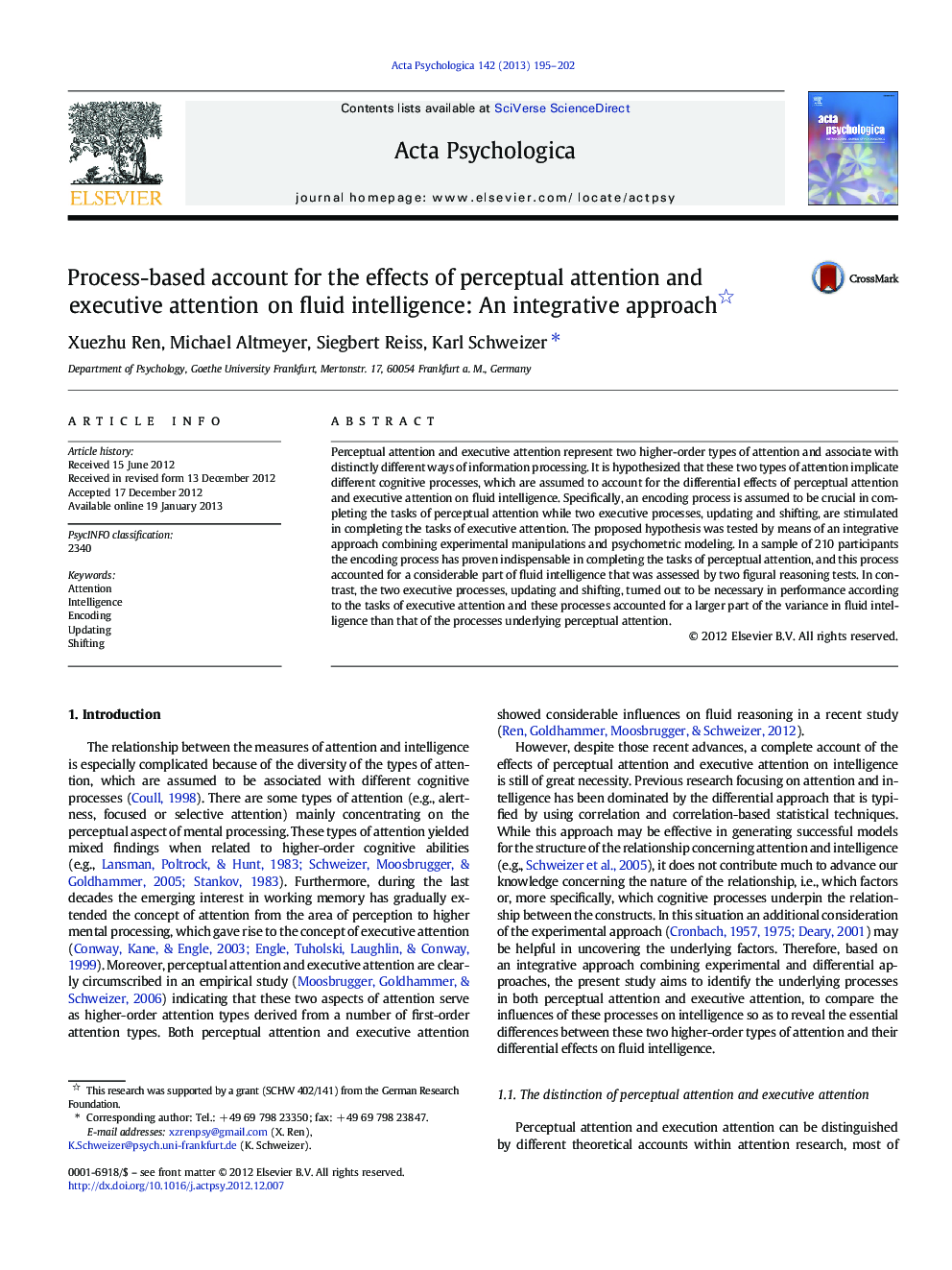| Article ID | Journal | Published Year | Pages | File Type |
|---|---|---|---|---|
| 919881 | Acta Psychologica | 2013 | 8 Pages |
Perceptual attention and executive attention represent two higher-order types of attention and associate with distinctly different ways of information processing. It is hypothesized that these two types of attention implicate different cognitive processes, which are assumed to account for the differential effects of perceptual attention and executive attention on fluid intelligence. Specifically, an encoding process is assumed to be crucial in completing the tasks of perceptual attention while two executive processes, updating and shifting, are stimulated in completing the tasks of executive attention. The proposed hypothesis was tested by means of an integrative approach combining experimental manipulations and psychometric modeling. In a sample of 210 participants the encoding process has proven indispensable in completing the tasks of perceptual attention, and this process accounted for a considerable part of fluid intelligence that was assessed by two figural reasoning tests. In contrast, the two executive processes, updating and shifting, turned out to be necessary in performance according to the tasks of executive attention and these processes accounted for a larger part of the variance in fluid intelligence than that of the processes underlying perceptual attention.
► Investigate the effects of perceptual and executive attention on fluid intelligence. ► Specific cognitive processes was proposed to account for the effects. ► An encoding process drives the effect of perceptual attention on fluid intelligence. ► Updating and shifting drive the effect of executive attention on fluid intelligence.
